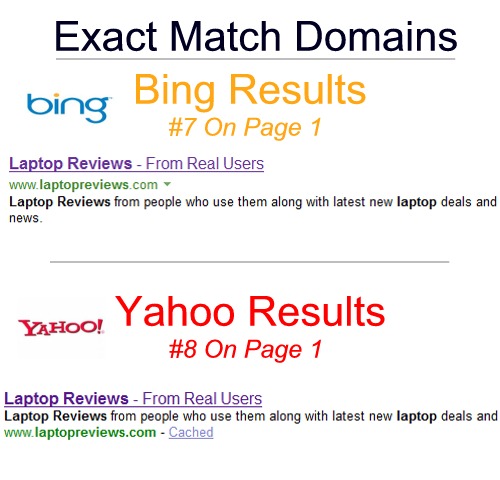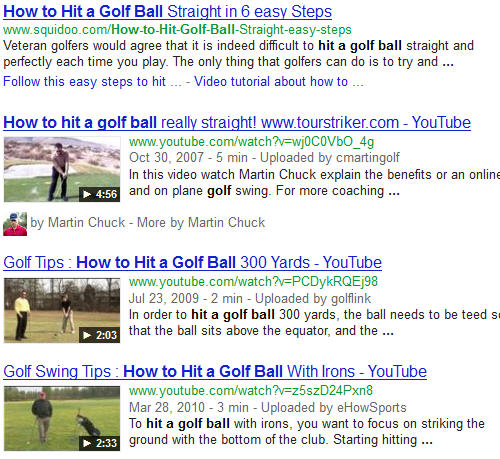If your website has been penalized by Google, we are going to discuss what you should do.

“Please Google. Don’t dash my hopes that 10 years of hard work building the most user friendly site in our industry wasn’t in vain…”
This is a quote from a website owner after being penalized by a Google update. There are thousands more quotes like this. The Google algorithm updates literally destroyed some businesses while elevating others (for each one removed another took its place). This process continues as new algorithmic changes continue to be released.
Fortunately, none of the sites using The SEO System were affected because we plan and provide solid white hat techniques that gradually build search and social media traffic the way Google intended.
If you were hit by Google penalties, you are either a shady website who deserved it or a worthy site that did not. In either situation, our sympathies run deep. Anybody who takes a giant whack to their income in one fell swoop is going to feel lots of pain. This was income that you probably used to pay your rent, feed your family, or discretionary income that you used for the family vacation. Everyone out there who earns money online sympathizes with your situation.
However, this article is not going to be about sympathy. It’s about action! What should you do about a website that has been penalized? When all of the emotional drama is gone, you need to act. You essentially will have to make one of three decisions:
- You can scrape your website entirely.
- You can leave your website up and do nothing, benefiting from the little traffic it now generates.
- You can continue creating and promoting great content, achieving success when everyone has marked you as a goner!
Below, I will present several different scenarios based on those who have contacted The SEO System for consulting services after being stripped of their rankings. In these scenarios, I will tell you what future action should be considered. Hopefully, you will see a little bit of your situation here and be able to take the appropriate form of action.
And, if not, hit us up in the comments below and ask about your particular situation.
Bing It Up Baby. Yahoo!
In situation number 1, we got a call from a website owner who had just been de-indexed from Google but still reigned supreme elsewhere, occupying the #1 spot on both Bing and Yahoo.
While their #1 spot on Yahoo and Bing is enviable to many, the drop in traffic and income was dramatic. The site had gone from 10,000 visitors a day down to about 950 per day. If you ever doubted Google’s current dominance, that stat should provide proof to the contrary.
This situation is not unique. I have received many calls from those who have a website highly ranked on Yahoo and Bing but has essentially disappeared from Google. This is because Yahoo and Bing still respond to traditional SEO practices that the new Google algorithm dislikes.
So, what should you do in this situation? It depends…
I had to deliver sour news to this particular caller. The website in question, though it looked great, was predominantly duplicate content. The site had risen to the top of the search engines with intense focus and inbound link building based on a few keywords. The site had no chance on Google ever again because it could not pass “the naked eye test”. The quality and originality were not there.
“But,” they protested, “we use to be #1 on Google and this destroys our income!”
“I understand and sympathize,” I responded, “but you’ll never be back atop Google again.”
If you find your site atop Yahoo and Bing but have been lost in the Google shuffle AND you have quality, original content, refer to the “Who Needs Google?” section below.
The Exact Match Domain & Other Algorithmic Penalties: The One Question You Need to Ask!
I can’t count the number of calls that I have received from people who were Google-slapped because of the Exact Match Domain penalty.
If you don’t know what this is, let’s take a look at an example. I’ll just come up with a term off the top of my head…let’s say “laptop reviews”. As we see in the photo from Google Adwords below, this term could bring in great traffic and the advertisements on this topic would be lucrative.

So, if someone creates a domain name called laptopreviews.com, this would be an exact match domain. The domain name exactly matches the term for which the site is trying to get results. This technique used to work very well and now site owners are being penalized under the assumption that these sites tend to…well, suck.
Now, for fun, let’s see if that site exists. Of course it does AND it illustrates our example above. As you see in the picture below, the site still appears on page #1 of Bing and Yahoo.

And Google? The site is nowhere to be found in the first 10 pages according to the simple, well-designed site What Page of Search Am I On? (Since this article went to print, the site has made a comeback and is now on page 2…this should give everyone who incurred Google penalties inspiration. See the section below called “Hopeful Signs: Sites Return to Google Rankings After Initial Hit”)
Here we see one example, and there are literally thousands, of a site that has been hit by the Google algorithm that penalizes “exact match domains”. Many other sites have suffered not from the Exact Match Domain penalty but from similar, some would say nefarious, Google algorithmic changes. Examples of these, which we wrote about in our SEO Over-Optimization article and demonstrated in our YouTube video on Google penalties, would include too many inbound links that use the same anchor text, lack of inbound links that use your URL as anchor text, links from irrelevant and shady sites, too much keyword density on a page, too many links from one place…and the list goes on and on. All of these were signals to Google that you tried to manipulate your inbound link profile.
Questions abound when you are in this situation? Will your site ever return to the top of Google? Should you continue working on it? Should you contact every site on which you have “bad” inbound links?
But, of all of these questions, this is the one that you most need to tackle:
Does Your Website Suck?
Suck is a colloquial term, somewhat crude and irreverent, but it does apply. And we might even want to get more specific with the question: Does your website suck compared to others in the space?
The problem with this “suckiness” factor is that it is completely subjective. Your goal, quite obviously, is to get back to the top of Google. What would happen if you complained to them? Have you ever looked at their complaint form?
You essentially have to prove that your site is better than everybody ranked above you. If, on the complaint report, you say, “I used to rank here for <insert keyword> and I now I am gone”, do you think they will care?
Bottom line: If you manipulated the search engines and got a sub-par site to the top of Google, you ain’t never comin’ back! However, if your site truly does not suck, it may have a chance.
Will Your Site Ever Return To The Top Of Google?
This is such an important question for many people: “Will my website ever return to the top of Google?” Why do people ask this? Well, the big one is money.
I know, I know…we have the pride of recognition, the satisfaction of words well-written, and the great pleasure of well-crafted prose that inform our visitors…
But, will you still spend 3 hours crafting an article that very few people will read and will earn you nothing?
Let’s get real then. If you have determined that your website doesn’t suck, and is in fact a website that is original and from which visitors greatly benefit, your chances of returning to the top of Google, and the time it will take to achieve this, directly correlate to the topic on which your website is based. The more money “the topic” generates, the greater your competition will be and the lesser your chances of success will be.
The laptop reviews site is a great example. Google now favors sites that are “industry standards” for many top search terms. Take a look in the graphic below at the top 3 sites returned for Laptop Reviews.

These are all “industry heavies”: cNet, PcMag, and PCWorld. These are sites that Google labels as “beyond reproach”–they can do no wrong in Google’s eyes! In the past, you could beat them with a heavily SEO’d site that focused on the keyword “Laptop Reviews”. This is not possible anymore so forget it.
If these heavies are your competition, you need to find contentedness on the bottom of Google’s page 1 or, more likely, in a much worse location. If however, your competition is not so stiff, you have hope.
Hopeful Signs: Sites Return to Google Rankings After Initial Hit
It is important to remember Google’s goal: To provide the best search results. This is still their bread and butter and what funds their vast empire. While they strive to achieve these “best results” with their algorithmic changes, they do not always get it right: many quality pages and sites were slammed by the search engines. This was not Google’s intention.
While I don’t believe Google really hears individual outcries of unfairness, I do believe that they hear collective outcries, which were hard to ignore after some very prominent websites (ones that should have been labeled beyond reproach) received a rankings hit. Google heard these outcries and remedied the situation. Now, with their team of highly educated engineers, I believe that they are refining their algorithm even more.
We have seen recent signs of sites that were hit by Google Panda coming back. Just today, as I was going out to hit golf balls, I typed this search into Google: “How to Hit a Golf Ball”.

Look at the #1 result: Squidoo. Squidoo had initially received the wrath of the Panda and is now reappearing, as are many other sites who were initially slammed like eZinearticles.com.
Moral of the story: If you have quality content, you stand a chance of a comeback. In the meantime, let’s investigate this question:
Who Needs Google? Achieving Success Without Google Through Social Media!
You cannot control Google and, frankly, you probably cannot even get them to even hear your case. But, can you succeed without Google?
Google is still the main way that people find things on the Internet. However, there are many other ways that people discover websites. And, ironically, if you master these other ways, it will bring you back to Google much more quickly.
The biggest item on this list is social media. If you have not yet had a look, be sure to visit our mastering social media page.
People are using social media now more than ever and, when you leverage the true power of social media, you will realize direct visits from many social media outlets. The side benefit of this is that Google now heavily factors “social signals” into their search results. So, by mastering social media, you are one step closer to making friends with Google again.
Keeping An Eye On The Future
If you were penalized by Google, and you have a quality site that merits a continued presence, you need to think beyond today and tomorrow.
You may not be prevalent on Google now, but you might not need to be in the future. Do you remember who controlled Internet Search before Google and Yahoo? Do any of these names ring a bell: Magellan, Excite, Infoseek, Inktomi, Northern Light, and AltaVista? They are all a distant memory but, at one time, controlled your search results.
Could this fate befall Google?
While I wouldn’t necessarily bet against Google, they have certainly strayed a bit from their core. In an article I wrote a few months ago entitled Google Then and Now: Has Google Lost Their Way…or Found It?, I pointed out many of the differences between the Google that took the search world by storm a decade ago and the Google that exists today.
Let’s take a look at a quick example. Google’s stated goal is to provide the best objective search results. Yet, we often see Google now providing their results, which are not necessarily always the best. Above, we used the search phrase “How to Hit a Golf Ball” and saw, quite surprisingly, that Squidoo provided the #1 results. But did you see the next three?
All Youtube videos, YouTube being a Google property. Is this an objective result? Search for any “how-to” topic and you will find YouTube videos popping up right at the top. The same can be said of Google favoring Google+ properties, Google maps, and various other Google properties throughout their search results.
Google has every prerogative to do this and you certainly can’t begrudge them furthering their business. However, you can certainly no longer say that their search results are “objective.”
Google still derives well over half of their revenues from Google search. What if they lost their audience? Do you think this is impossible?
One day, at an Internet cafe, I watched user behavior. Of the 20 people in the cafe using the Internet, all were on Facebook and the only time that they visited Google was to search for something…and then they returned to Facebook.
Well, what if Facebook implements search?
Conclusion: What You Should Do If You Were Penalized By Google
The world of Internet search can be fascinating and frustrating. For those penalized by the Google algorithmic changes of the past year, frustration (and anger, bitterness, hatred, etc.) is the overriding reaction.
Most of you bore the brunt of Google’s changes more than 6 months ago. Hopefully, given this passing of time, you have been able to let go of the anger, which is difficult…especially for those who literally had their incomes stripped.
But now is the time for action!
 You can either forge ahead, embracing new forms of traffic with the hopes of getting in Google’s good graces once again, or decide not to. The decision is really that simple.
You can either forge ahead, embracing new forms of traffic with the hopes of getting in Google’s good graces once again, or decide not to. The decision is really that simple.
You need to answer a tough question: Are you willing to put in that quality time to create a great blog post when it may not be read immediately by anyone…when 1 year ago it was read by thousands?
In conclusion, my advice is as follows: If you have a quality website, with original, compelling content, go for it! Google may not give you love now, but if you adapt and prosper in this new social media world, your site will eventually become “beyond reproach” in the eyes of Google…or whatever search mechanisms dot the horizon.
- The AI Inconsistency Gap: Why Your Brand is Winning on Google but Losing the “Answer War” - February 26, 2026
- The Personal Assistant Pivot: Optimizing for AI Search and AEO in 2026 - February 26, 2026
- The Ultimate Guide to Dental SEO: How to Rank Higher & Attract More Patients - March 10, 2025

